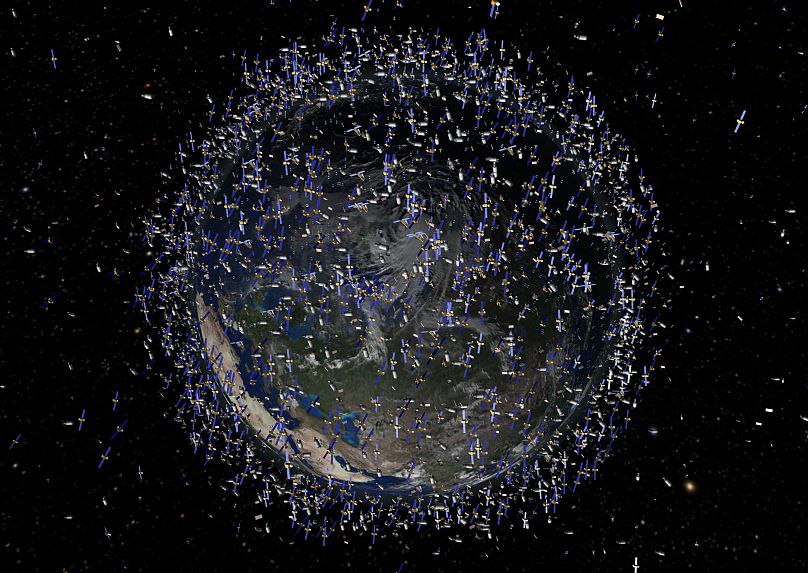The US Federal Communications Commission has said it could "pose orbital debris concerns" for other satellites.
US authorities have issued the first-ever fine for space debris to a TV company that failed to properly dispose of a satellite, officials said on Monday (2 October).
 ADVERTISEMENT
ADVERTISEMENT
 ADVERTISEMENT
ADVERTISEMENT
Dish Network was fined €142,440 for "failing to properly deorbit" a satellite named EchoStar-7, which has been in space since 2002, according to a statement from the Federal Communications Commission (FCC).
"This marks a first in space debris enforcement by the Commission, which has stepped up its satellite policy efforts," the FCC added.
Dish was fined after it moved the satellite to a lower altitude than had been agreed at the end of its operational life which the FCC said "could pose orbital debris concerns".
Why was the company fined for space waste?
In 2002, the satellite was launched into geostationary orbit which begins at around 36,000 km above Earth.
In 2012, as it came to the end of its operational life, Dish committed to raising the satellite's altitude to 300 km above its operational trajectory. This would have moved it into a "graveyard orbit" where it wouldn't be a danger to other satellites.
But with fuel levels falling, the company limited itself to bringing its satellite to an altitude just over 120km above geostationary orbit - 178km from where it should have been.
This is a breakthrough settlement, making very clear the FCC has strong enforcement authority and capability to enforce its vitally important space debris rules.
The settlement reached by the FCC and the company "includes an admission of liability from the company and an agreement to adhere to a compliance plan and pay a penalty of $150,000".
Dish did not immediately respond to a request for comment.
Why is space waste a problem?
The European Space Agency estimates that there are more than a million pieces of debris larger than a centimetre in Earth's orbit. Debris of this size is big enough to "disable a spacecraft".
And waste in orbit is already causing problems. In January last year, a Chinese satellite had a near miss with a piece of debris from a Russian anti-satellite missile test. The two objects came within just 14.5 metres of hitting each other.
In 2021, debris knocked a five-millimetre hole in a robotic arm on the International Space Station.
"As satellite operations become more prevalent and the space economy accelerates, we must be certain that operators comply with their commitments," says FCC Enforcement Bureau Chief Loyaan A. Egal.











